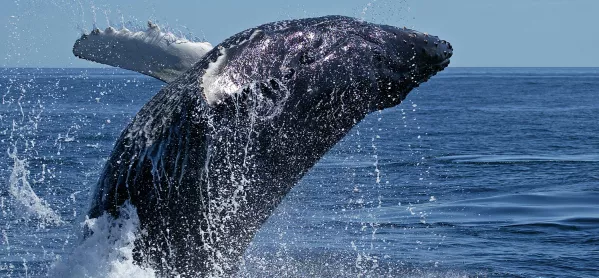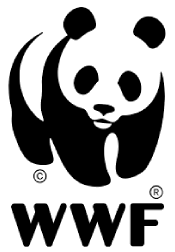How your school can help save the oceans

“I have an immense love of the oceans,” says Andy Pugsley, headteacher of Salcombe Primary School in Devon, and an enthusiastic scuba diver in his spare time.
Like many people watching the BBC’s Blue Planet II recently, Pugsley was shocked to see the extent of plastic pollution in the world’s oceans and the detrimental effect it was having on marine life.
As someone who knows from personal experience “how beautiful life is when swimming 25 feet below sea level”, Pugsley felt a responsibility to educate his pupils on the issue.
Teaming up with a local environmentalist whose daughter attends his school, Pugsley set aside a day dedicated to raising awareness about the impact of plastic pollution on their coastal town. School assemblies were turned over to guest speakers who talked about the different species present in the local Salcombe Estuary and how plastic litter was harming their habitat.
“The fact that the river is right on their doorstep motivates the children. They have seen these beautiful creatures and know that could all change if they don’t do something about it,” says Pugsley, who gave pupils the green light to come up with their own ideas to help address the issue.
Persuading local businesses to ditch single-use plastic topped the pupils’ wishlist, as did the annual Salcombe trawler race, where water balloons are thrown from the shore as part of festivities.
While Year 4 and 5 pupils wrote letters to the harbour master asking him to reinforce the ban on balloons that prove so lethal to wildlife, children in Year 6 met local MP Sarah Wollaston to draw up a manifesto on plastic for the school.
“That helped to invigorate and drive the campaign further as it empowered the children to be at the heart of everything we were doing,” says Pugsley, whose youngest pupils go out on litter picks in the community and study the issue in class.
Reducing plastic in the school’s kitchen is next on the agenda. With plastic straws already swapped for metal ones, Puglsey has plans to conduct an audit into how much single-use plastic is being used at lunchtime, with a view to finding environmentally friendly alternatives.
Pupil-led ecology
Lisa Batten is operations manager at Uffculme Academy Trust in Devon, a primary and mixed secondary school with a ‘Zero to Landfill’ recycling policy and a pupil-led eco council.
Like Salcombe School, Uffculme is also reducing its use of plastic in the kitchens. Polystyrene is being phased out and all food packaging is now recyclable, with biodegradable cutlery replacing plastic knives and forks.
“It’s more expensive and there are funding issues we have to think about, but we’re willing to meet the cost because it’s important,” says Batten.
During the summer holiday, water refill stations are going to be installed at Uffculme and everyone will be encouraged to bring reusable bottles to school, so as to reduce the amount of plastic waste still further.
In the meantime, the school canteen is buying water from catering suppliers whose packaging consists of cartons and resealable cans, while an innovative use for existing plastic water bottles has been found in the school garden.
“We bought a greenhouse frame off the internet and rather than using glass for the window panes, we used plastic bottles that the pupils had collected instead. We’re growing our vegetables in there, including cucumbers and tomatoes,” says Batten.
Trash mobs
At St Bede’s Catholic Primary School in Sacriston, County Durham, headteacher Eve Alderson also felt a call to arms as a result of watching Blue Planet II.
“The school already had a little team of eco-warriors that look into things like energy efficiency,” she says. “Everyone had watched the programme and was horrified about the amount of plastic in the ocean. We researched the issue some more and decided that something must be done.”
The small village school took the decision to stop routinely laminating while, in the kitchen, catering staff replaced cling film with reusable tinfoil and the cook invested in a yoghurt maker to avoid having to buy individual plastic pots.
“Our milk used to come in individual plastic cartons, too, with a plastic straw attached, so we wrote to the supplier and asked them if they could make their product more eco-friendly. Now they send us milk in big cartons and supplied us with beakers for the children to drink out of,” says Alderson, who estimates that initiative alone has reduced their plastic use by 500 milk cartons a month.
St Bede’s pupils are also concerned with the use of single-use plastic out in the community, and regularly go out in “trash mobs” to conduct litter picks.
“The school is right next to a bus stop where there is a ridiculous amount of litter. It’s awful to see. When we find plastic litter, we tweet the companies involved saying, ‘Can you help us to reduce our litter by addressing your packaging?’.’’
A cross-curriculum approach to plastic pollution means pupils use science classes to conduct investigations into the issue, and it’s also covered in art and writing, too.
“When the issue with microplastics was explained to pupils, they opted to stop using glitter. The kids drove the decision and although biodegradable glitter exists, they just won’t have it,” says Alderson.
Since implementing plastic-free initiatives, the head has been inundated with emails from proud parents whose children are teaching them about the issue and insisting that single-use plastic isn’t used at home. Other schools in the area have also been in touch to find out more about the school’s efforts with a view to implementing similar measures of their own.
While the environmental benefits of reducing plastic use are beyond dispute, Alderson is clear on the gains that learning about the issue has for children too, both across the curriculum and beyond it.
“Kids are incredibly passionate and motivated by the issue,” she says. “It helps them to realise that they can make a difference to their world, and about what can be achieved by working together.”
Victoria Briggs is a writer and education journalist
Find a range of free WWF resources on oceans and plastics to use with your class here.
Become a Green Ambassador School
Green Ambassadors is all about encouraging a new generation of sustainability champions. Register your school for the WWF flagship programme for schools and you’ll have access to a range of curriculum-linked resources on topical environmental issues, including energy, travel, food, water, plants, animals and recycling.
